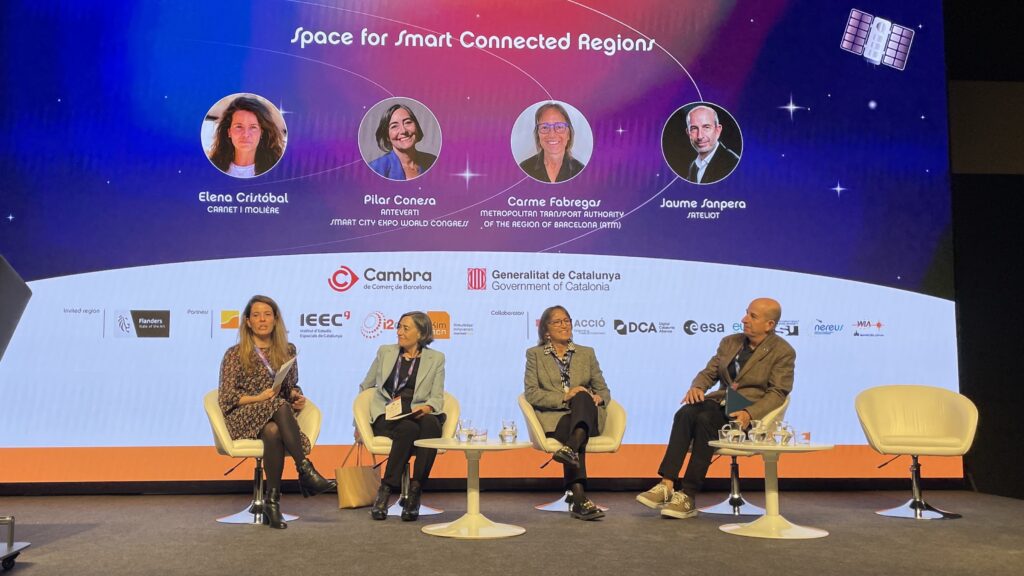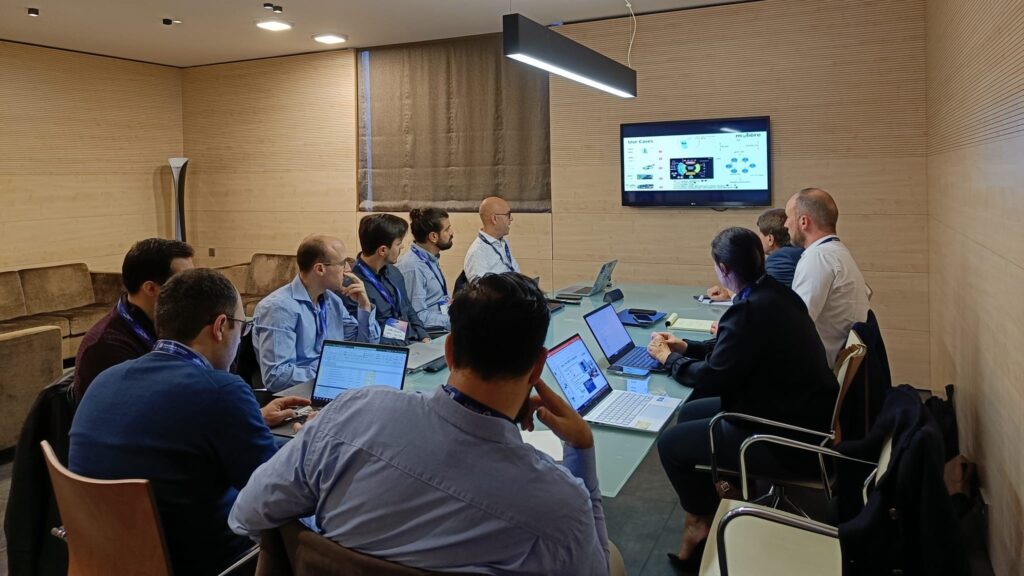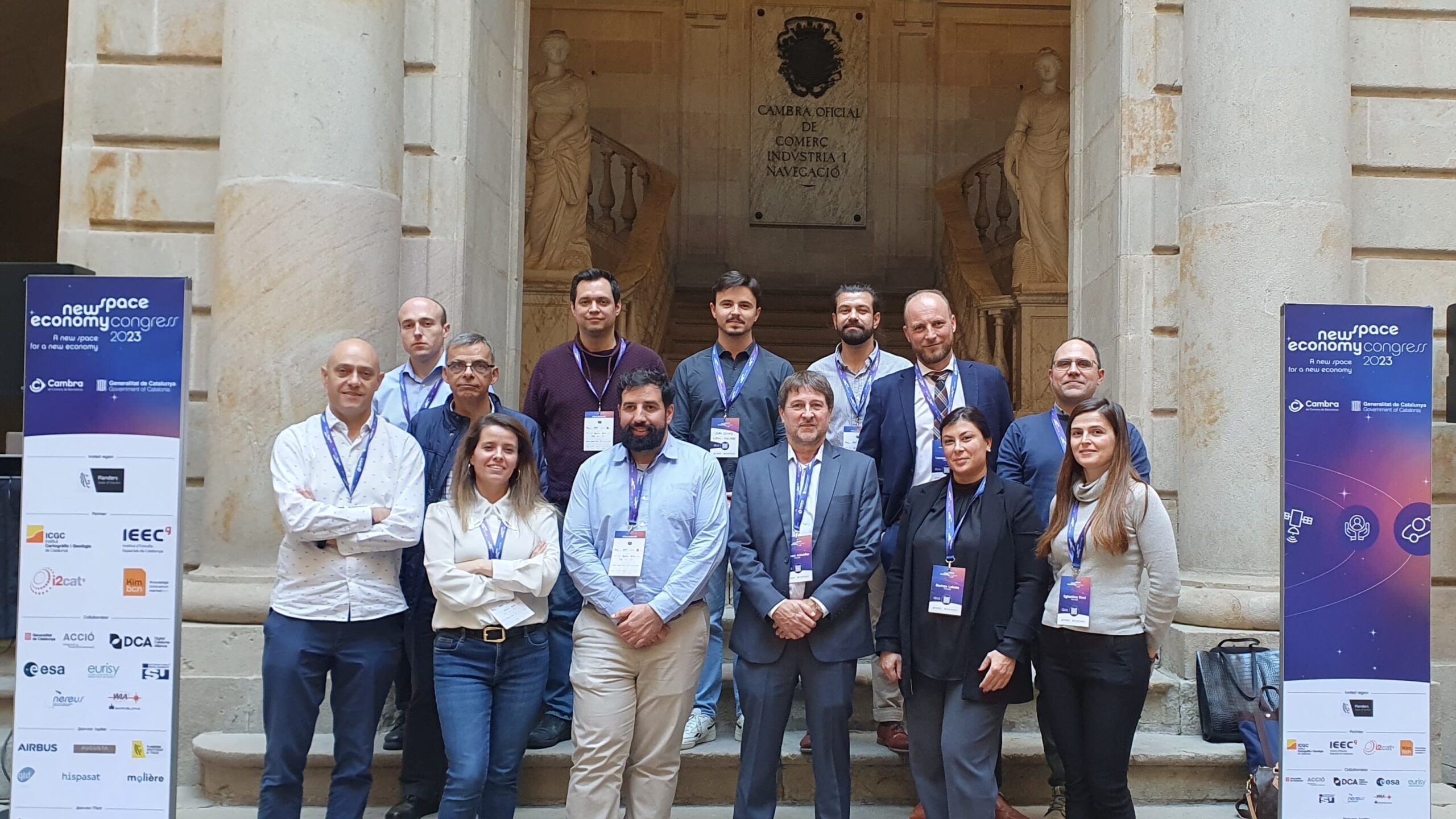The Molière project, supported by EUSPA, marked a significant milestone last week after a three-year journey. The final consortium meeting, held during the New Space Economy Congress 2023 in Barcelona, encapsulates the culmination of the project.
Within the dynamic atmosphere of the congress, Molière took center stage, utilizing its booth as a platform to exhibit advancements within the evolving space landscape. Noteworthy was Molière’s participation in the Space Talks, were the project’s pioneering strides in the industry were highlighted.
A standout event was Molière’s contribution to the round table discussion titled “Space for Smart, Connected Regions.” This forum emphasized the project’s core objective of leveraging Galileo, the European GNSS, to drive innovation in mobility services. Molière’s vision underscored its role in utilizing Galileo’s accuracy and reliability to obtain geopositioning data, revolutionize mobility services and shape intelligent, interconnected regions.

The successful implementation of smart and connected regions relies upon the utilization of advanced satellite technology, characterized by its precision and reliability, which is something that Galileo allows to its users. This technological framework allows operators to extend mobility services to the farthest reaches, particularly in remote areas where connectivity may traditionally be challenging to establish. By integrating precise and reliable geopositioning data into its operational architecture, the efficiency and effectiveness of these services are enhanced, addressing the needs of diverse and often underserved communities.
Within this topic, it is crucial to highlight that public-private collaborations, exemplified by projects like Molière, are necessary to trigger impactful advances in future mobility. This synergy becomes particularly powerful when bridging seemingly unrelated areas such as regional planning and cutting-edge technology. The fusion of diverse resources demonstrates the potential for ground-breaking advancements thanks to collaborative efforts in the field of mobility.
Throughout its development, Molière exemplified collaborative excellence, uniting diverse partners in pursuit of a shared mission. This collective effort yielded ground-breaking achievements, transcending conventional boundaries and fostering advancements in the space-based mobility data marketplace (MDM) built as a key outcome of the project.

Consortium meeting held during the New Space Economy Congress 2023
As Molière is reaching its end, its influential role within the industry and results will help shape new collaborative projects. Beyond its temporal scope, the project leaves an enduring impact on the trajectory of mobility innovation. The effect of Molière’s contributions will help shape the narrative of a dynamic and interconnected mobility ecosystem.



